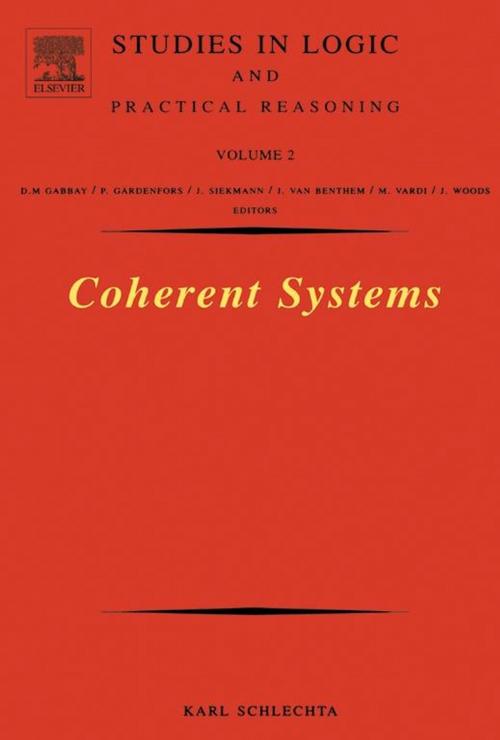Coherent Systems
Nonfiction, Science & Nature, Mathematics, Logic, Computers, Advanced Computing, Artificial Intelligence| Author: | Karl Schlechta | ISBN: | 9780080502199 |
| Publisher: | Elsevier Science | Publication: | September 21, 2004 |
| Imprint: | Elsevier Science | Language: | English |
| Author: | Karl Schlechta |
| ISBN: | 9780080502199 |
| Publisher: | Elsevier Science |
| Publication: | September 21, 2004 |
| Imprint: | Elsevier Science |
| Language: | English |
One aspect of common sense reasoning is reasoning about normal cases, e.g. a physician will first try to interpret symptoms by a common disease, and will take more exotic possibilities only later into account. Such "normality" can be encoded, e.g. by a relation, where case A is considered more normal than case B. This gives a standard semantics or interpretation to nonmonotonic reasoning (a branch of common sense reasoning), or, more formally, to nonmonotonic logics. We consider in this book the repercussions such normality relations and similar constructions have on the resulting nonmonotonic logics, i.e. which types of logic are adequate for which kind of relation, etc.
We show in this book that some semantics correspond nicely to some logics, but also that other semantics do not correspond to any logics of the usual form.
- Provides a coherent picture of several formalisms of nonmonotonic logics
- Gives completeness and incompleteness results for many variants of preferential, distance based, and other semantics
- Gives probably the first systematic investigation of definability preservation and its consequences
- Gives new proof techniques for completeness results
- Is centered on semantics
One aspect of common sense reasoning is reasoning about normal cases, e.g. a physician will first try to interpret symptoms by a common disease, and will take more exotic possibilities only later into account. Such "normality" can be encoded, e.g. by a relation, where case A is considered more normal than case B. This gives a standard semantics or interpretation to nonmonotonic reasoning (a branch of common sense reasoning), or, more formally, to nonmonotonic logics. We consider in this book the repercussions such normality relations and similar constructions have on the resulting nonmonotonic logics, i.e. which types of logic are adequate for which kind of relation, etc.
We show in this book that some semantics correspond nicely to some logics, but also that other semantics do not correspond to any logics of the usual form.
- Provides a coherent picture of several formalisms of nonmonotonic logics
- Gives completeness and incompleteness results for many variants of preferential, distance based, and other semantics
- Gives probably the first systematic investigation of definability preservation and its consequences
- Gives new proof techniques for completeness results
- Is centered on semantics















